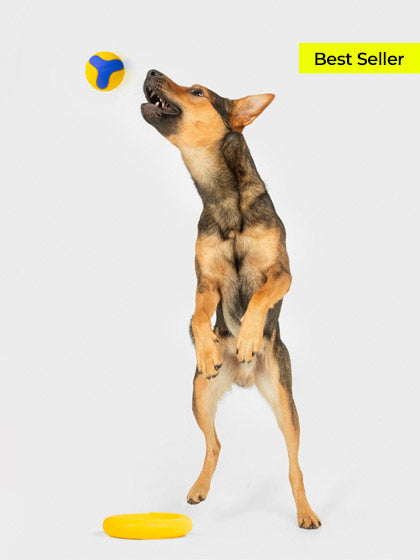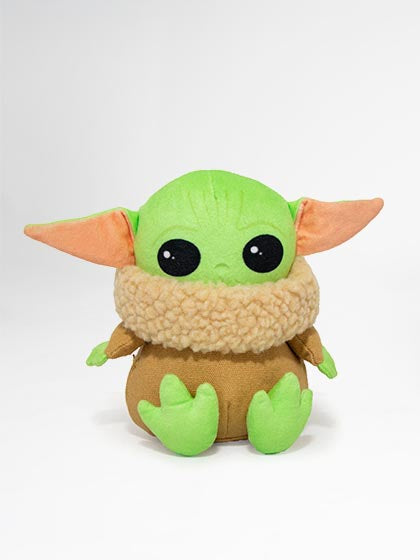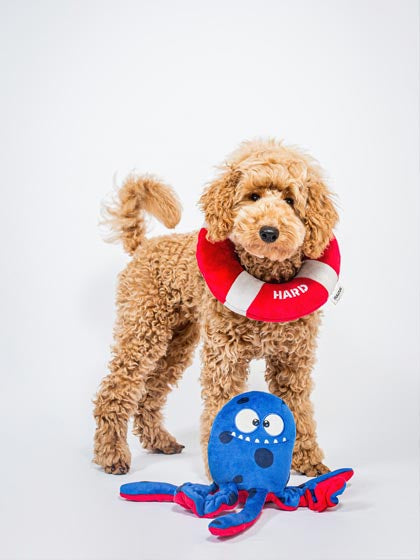Love My Fur Baby | How Can I Give Proper Puppy Teething Help?
Is your puppy pal chewing everything and nipping you, too? Find pet friendly advice for puppy teething help in our guide to stages of growth for puppies.
How many deciduous teeth do puppies have before they end up with 42 adult teeth?
It's 28 teeth that fall out of their mouths when they're going through the teething stage. The teething phase of your puppy can be annoying because your puppy will constantly nibble on things that aren't supposed to be nibbled on. Take your ankles or your furniture, for example.
Please continue reading this article if you need some puppy teething help to save your furniture and ankles.
How Long Does Puppy Teething Last
Puppy teething usually begins at the age of three months and ends at five months. Although every puppy is different, and some may start teething earlier than others. When your puppy reaches the age of 3-8 months, you will notice teething signs.
A puppy's first set of baby teeth, known as deciduous teeth, starts to appear between the ages of six and eight weeks. You probably won't have to deal with your puppy teething at this stage since they are still under their mother's care.
Deciduous teeth last only a few months before the adult teeth begin to break through the gums. As soon as this happens, your puppy's nibbling problems will begin.
As puppies grow in their adult teeth, they will lose their baby teeth at different rates. Your puppy's tiny teeth in the front of the mouth, called incisors, will start to push out during the third month. So the first sign that your puppy is teething is when these teeth start falling out.
Between month four and month eight, the teething will move from the front to the back. Next to fall out are the fangs or canine teeth, followed by the premolars and molars. So when your puppy is eight months old, he or she should have all 42 adult teeth.
What Are the Common Signs of Puppy Teething
Keep in mind that every puppy is unique and may not display all of the teething symptoms. The following are the most common signs a puppy is teething.
- There are spots of blood on their toys
- You find a tiny puppy tooth around the house
- Your puppy is trying to bite on everything
- There's increased drooling
- Your puppy slows down while eating
- Their gums are red and swollen
- Your puppy has a low-grade fever
Your puppy may experience significant discomfort when they are gaining their adult teeth. Think of the process as a six-month-old baby getting their first teeth and how upset they are during that time.
During this time period, remember to comfort them and find ways to help with their swollen gums.
How Can You Help With Your Teething Puppy
As a parent to a fur baby, you should take proper steps in caring for your puppy during their teething stage. Below are some ways you can help with your puppy nipping at this time of their life.
1. Buy Puppy Toys for Them to Nibble On
If you do not want your puppy to bite on your fingers and everyone else's, it's a good idea to buy toys for when they need something to nibble on. Here's a puppy training technique: when your puppy starts to nibble on you or something, they're not supposed to replace it with their toy.
They will learn their toys are meant to be chew on and not human fingers. Be sure to buy puppy toys that are safe and durable for their protection.
2. Buy Wet Dog Food to Help Their Need to Chew Food Better
The dry dog food might be too harsh for their teeth during this stage of your puppy's life. So, it will be best if you opt for some wet dog food. If you still prefer not to buy wet dog food for your puppy, you can add a little bit of water to their food to make it softer.
3. Freeze Your Puppy Toys
You might know this trick if you had to deal with a baby going through their teething stage, but you can put puppy toys in the freezer for at least two hours. The coldness from the toy will help with your puppy's swollen and bleeding gums.
4. Buy Puppy Treats Meant for Teething
The next time you go shopping to your local grocery store trying to find some tricks for your puppy that's meant for chewing on. Some of these puppy treats will be bones or teething sticks. During your puppy's training, you can also use these tricks to help them corporate and listen to your command.
5. Don’t Be Afraid to Look Inside Their Mouth and Help Them Get Used to It
It would help if you got into the habit of checking your puppy's mouth to see how their teeth are coming in. Teething can take months for the process is be over with, so as soon as you get them. If you do, your puppy will be comfortable with you looking inside their mouth when they are going through the teething process.
What if My Puppy Needs to Chew Becomes Aggressive
It's normal for your puppy to want to nibble and bite on your fingers, but they might decide to take it too far. Puppies can be like babies and toddlers and choose to throw a tantrum when things do not go their way, or you do something they do not like.
You should start your puppy training early and teach them to be gentle within their bite force when biting on humans or other animals. Also, avoid waving your fingers in front of their face as it will encourage them to chew on them and play aggressively.
Here’s Your Guide for Puppy Teething Help
We hope this guide for puppy teething help with any concerns you might have. However, if you have any worries or problems with your puppy, you should contact a veterinarian as their expertise can determine if your puppy teething needs any professional care.







